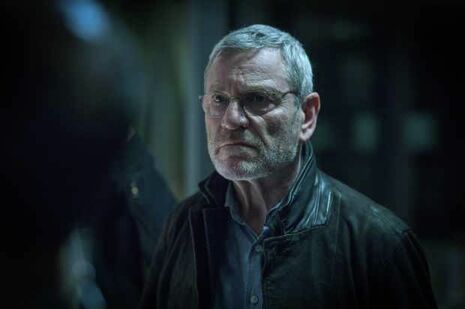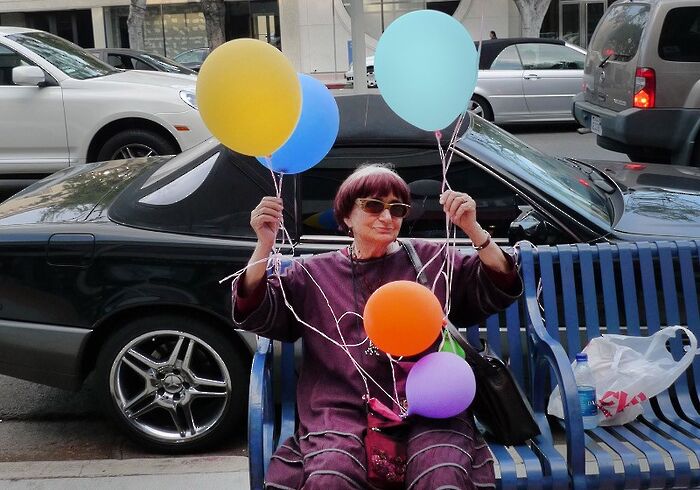Baptiste review: Nordic noir, but make it xenophobic
Watching Baptiste, Helen Grant finds a “high-production-value dog whistle” in the new BBC drama, veering into gritty Nordic noir

Deal, England. White cliff country. An elderly Englishman collects rare “lefties of the shoreline” seashells. A bearded Romanian comes to check the gas metre armed with a plastic bag and a chainsaw. The opening scene of Baptiste unfolds like a Lars von Trier reimagining of one of UKIP’s 2015 general election billboards: a high-production-value dog whistle. Murder in Deal. Welcome to the water-cooler drama the BBC picked to accompany Britain’s planned exit from the EU.
The killer, we eventually learn, is named Constantin Baracu (played by Alec Secăreanu), and he is the head of the Dutch branch of Romanian trafficking gang the Serbilu Brothers. Audiences who watched Baptiste’s hugely popular parent series The Missing will by now feel quite at home with the Romanian gang bogeyman trope: in 2014 Jack and Harry Williams darkened our good English tellies with the terrifying Caid de Cité; now – and as the proverb goes, if the xenophobic stereotype ain’t broke then don’t fear exhausting it – titular hero Julien Baptiste (Tchéky Karyo) finds himself facing this familiar foe once again, under exceptionally convoluted circumstances. Having abandoned their avant-garde experimentations with chronology along with the title of The Missing, writers Jack and Harry Williams instead seek to dumbfound their viewers with a nightmarish Eurovision of Amsterdam red light windows, vanished sex workers, blood money-concealing tulip fields, Schengen zone slippage and bent Europol agents. And Romanian gangs, Romanian gangs everywhere, violating our English caravan sites, lurking in our supermarkets.
This makes Baptiste sound unwatchable; it’s actually insidiously, compulsively watchable. It is European in form as well as content, profiting from the gritty, social-malaise-based Nordic noir that came into vogue in the early 2010s and encouraged anglophone crime drama to look like Broadchurch and Happy Valley rather than Morse. Yet while Broadchurch uses Europe’s binoculars to get a fresh look on Britain, the world of The Missing has always been about using Europe’s binoculars to look back at Europe itself. At first this masqueraded as a sort of visual neo-sublime – the cinematography in Series 2 devotes most of its energies to wide shots of formidable urban snowscapes – but now we are seeing this for the third time round it becomes apparent that evoking continental Europe as the background for exploring British nightmares easily wanders into the territory of political parable.
Baptiste takes everything that was slightly uncomfortable about its predecessor and then uses it to write the entirety of the new show. Women under the age of about thirty are the choking canaries in this bottomless coal mine: in The Missing Series 1 they were all volatile drug addicts in crying need of a Jean Baptiste-shaped saviour, in Series 2 they were promoted to being the central concern of the show (and being locked up in a basement by a psychopath), and now in Baptiste it’s drug addiction again and sex work. Once again, we may blame the eastern Europeans: “The Romanians … traffic girls here,” Troubled Waif Natalie (Anna Prochniak) tells us. The fatherly concern we are encouraged to feel for these women is not inconsiderably confused by lingering shots of various nubile, bikini-clad bodies.
If the show had any other motive for evoking people trafficking other than to treat it like an ingredient in a readymix ‘gritty plotline’, then it would have focused on the experiences of the victims. Unfortunately, and I cannot stress this enough, you aren’t ‘raising awareness’ about a crime if its function in your TV drama is to offer an extra dash of pathos to the misfortune of a middle-aged white man (Tom Hollander). In contrast with the BBC’s other recent shows like Doing Money, Silent Witness, The Cry and Informer, which have all tackled a wide range of difficult social issues with nuance, empathy and imagination, Baptiste masks its fundamental intolerances beneath the cosmopolitan veneer of an international cast and a series of ultra-English-Channel location choices.
Romanians make up the second largest EU27 population in the UK, after Poles, and eastern Europeans as a whole have found themselves to be a focal point for the anti-immigration sentiment surrounding Brexit. If cultural importations like Nordic noir inevitably convulse in times of socio-political pressure, then it’s worth asking ourselves whether we should temporarily leave the genre and the subject matter to the people it belongs to. Although Baptiste might be vaguely exciting for those who aren’t currently suffering under the hostile environment created by day-to-day Brexit politics, it’s not even tightly-plotted enough to be a ‘good’ example of its own genre. Watch The Missing on iPlayer if you want a harrowing exploration of what it’s like to lose a child; avoid Baptiste as six episodes of glossy fear-mongering.
 News / Cambridge study finds students learn better with notes than AI13 December 2025
News / Cambridge study finds students learn better with notes than AI13 December 2025 News / Cambridge Vet School gets lifeline year to stay accredited28 November 2025
News / Cambridge Vet School gets lifeline year to stay accredited28 November 2025 Science / Did your ex trip on King’s Parade? The science behind the ‘ick’12 December 2025
Science / Did your ex trip on King’s Parade? The science behind the ‘ick’12 December 2025 News / Uni Scout and Guide Club affirms trans inclusion 12 December 2025
News / Uni Scout and Guide Club affirms trans inclusion 12 December 2025 Arts / Modern Modernist Centenary: T. S. Eliot13 December 2025
Arts / Modern Modernist Centenary: T. S. Eliot13 December 2025








